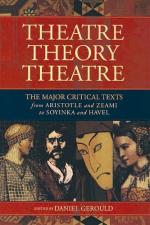|
This section contains 7,389 words (approx. 25 pages at 300 words per page) |

|
SOURCE: Nagatomo, Shigenori. “Zeami's Conception of Freedom.” Philosophy East and West XXXI, no. 4 (October 1981): 401-16.
In the essay below, Nagatomo uncovers the concept of freedom implicit in Zeami's theories of disciplined dramatic training, which results in a “controlled spontaneity” of mind and action. In this reprinting, ideographic characters have been silently deleted.
Freedom, as it has been propounded in the rich variety of theories to be found in Western philosophy, has seldom been conceived as an achieved quality of a person. In this article I would like to demonstrate that “freedom” can best be understood in this manner and that one of the most interesting expressions of this view may be found in the work of the Japanese “critic” Zeami (1363-1443), the “founder” of the aesthetics of the traditional Noh drama. Freedom, in his view—as I will reconstruct it—admits of degrees; and moreover, since it is...
|
This section contains 7,389 words (approx. 25 pages at 300 words per page) |

|


